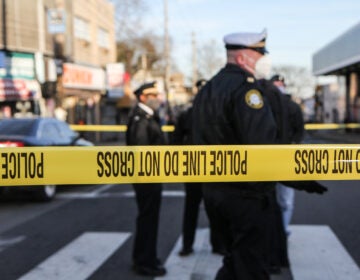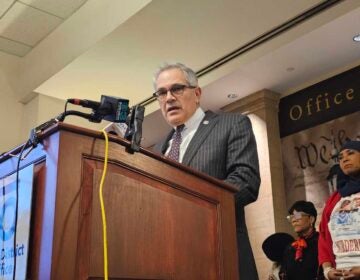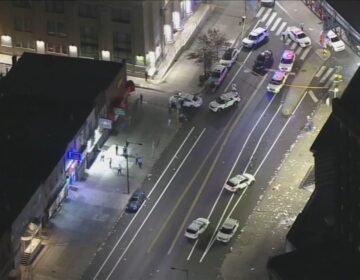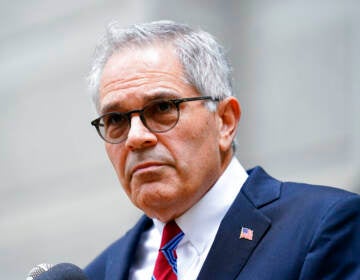Krasner’s stance on Mumia won’t cost him re-election. But it will stain his reputation as a reformer.
Krasner’s stance on misconduct in Mumia’s case may not cost him re-election, but it will stain his reputation as a criminal justice reformer.
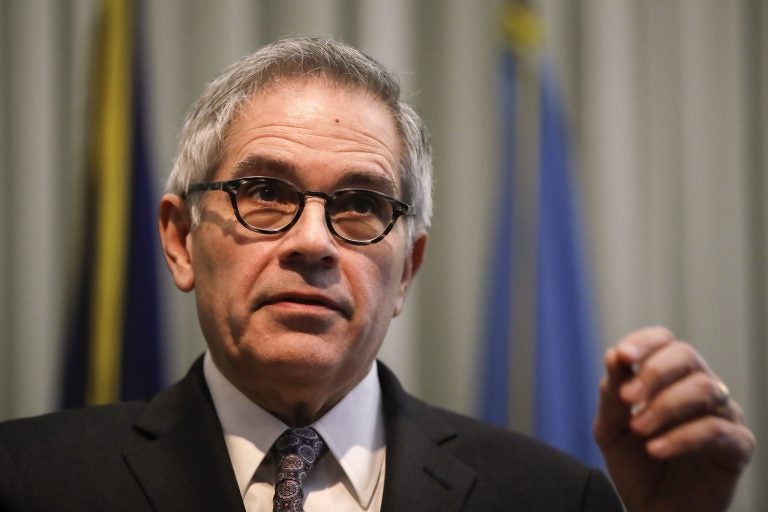
Philadelphia District Attorney Larry Krasner. (Matt Rourke/AP Photo)
Philadelphia District Attorney Larry Krasner deserves credit for ending the wrongful incarcerations of nearly 20 people. Krasner did what many of his predecessors did not: fulfill the legal and ethical duty of a district attorney to seek justice. Those wrongful convictions, which resulted largely from misconduct by police and prosecutors, produced decades-long prison sentences, including time on death row.
However, Krasner warrants criticism for his stance to sustain the conviction of Mumia Abu-Jamal, the journalist and activist who was convicted for the Dec. 9, 1981 murder of Philadelphia Police Officer Daniel Faulkner. It’s a contentious murder case that’s rife with misconduct by police and prosecutors.
Convicted during a highly charged 1982 trial, Abu-Jamal spent 30-years on death row before a federal court in 2011 commuted the sentence to life in prison.
Recently, doctors have diagnosed the 66-year-old with COVID-19, the lung disease that has killed over 500,000 Americans, and congestive heart failure — conditions that compound other debilitating ailments he suffers due to poor medical treatment in prison.
In December 2018, Krasner ironically stumbled upon six boxes of documents that contained startling new evidence of misconduct in Abu-Jamal’s case. The boxes — which included evidence that prosecutors failed for decades to give Abu-Jamal’s lawyers as required by law — were stashed in a forgotten storage room and uncovered during an inspection tour of the DA’s office complex. Withholding such items defines prosecutorial misconduct.
One of the items in those boxes is a handwritten note to the trial prosecutor from a key witness who was requesting the “money” that was promised but never provided. Curiously, Krasner’s office sees no improprieties in the apparent prosecutorial misconduct underlying that witness’s letter.
The most recent 96-page court filing against Abu-Jamal from Krasner’s office does contain over 20-pages devoted to defending other disturbing issues regarding that witness.
For example, Krasner’s staff defends that witness’ improbable testimony that Abu-Jamal repeatedly fired downward at Faulkner, while standing over him, striking the officer only once. Police crime scene photographs introduced at trial show no bullet marks that should be in the sidewalk around Faulkner’s body if that witness’s testimony was accurate.
The standard defense of Abu-Jamal’s conviction from Philadelphia DAs, including Krasner, is that appellate courts have repeatedly upheld the conviction.
However, missing from that defense is any acknowledgment that courts have repeatedly disregarded their legal precedent to dismiss evidence of misconduct by authorities in Abu-Jamal’s case. Those same courts have granted relief in other murder cases where evidence of misconduct was far less egregious than in the Abu-Jamal case.
In February 2020, the Supreme Court of Pennsylvania ordered a highly unusual investigation into Krasner’s handling of Abu-Jamal’s case, which was demanded by avowed opponents of the incarcerated former journalist. Faulkner’s remarried widow, and her Philadelphia police union allies, claimed Krasner favored Abu-Jamal.
The Supreme Court’s appointed investigator — a judge — found no fault by Krasner’s office.
Although that court formally rejected the removal of Krasner’s office from the case, some members of Pennsylvania’s highest court still declared their support for Krasner’s removal.
Those declarations — which elevated personal feelings over proven facts — provide another example of the systemic irregularities that fuel international condemnation of Abu-Jamal’s conviction. One justice on that court even made detailed suggestions on how to remove Krasner’s office and defeat Abu-Jamal’s latest appeal, suggestions that sabotage the impartiality required of the judiciary.
In a recent radio interview, Krasner remarked how both sides in Abu-Jamal’s case “think I’m 100% unfair to them!”
Krasner’s strained stance on misconduct in Abu-Jamal’s case may not cost him re-election this year. But it will stain his reputation as a reformer of inequities embedded in the criminal justice system, like those abundant in Abu-Jamal’s case.
Dave Lindorff is an “Izzy” Award-winning journalist and author of Killing Time: An Investigation into the Death Penalty Case of Mumia Abu-Jamal (Common Courage, 2004).
Linn Washington Jr. is a professor of journalism at Temple University and an investigative journalist who has covered the case of Mumia Abu-Jamal since the 1981 murder of Philadelphia Police Officer Daniel Faulkner.

Get daily updates from WHYY News!
WHYY is your source for fact-based, in-depth journalism and information. As a nonprofit organization, we rely on financial support from readers like you. Please give today.


